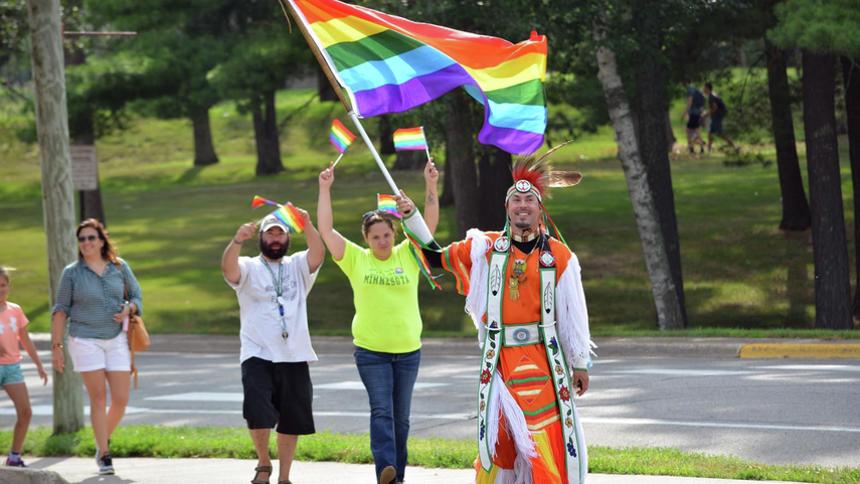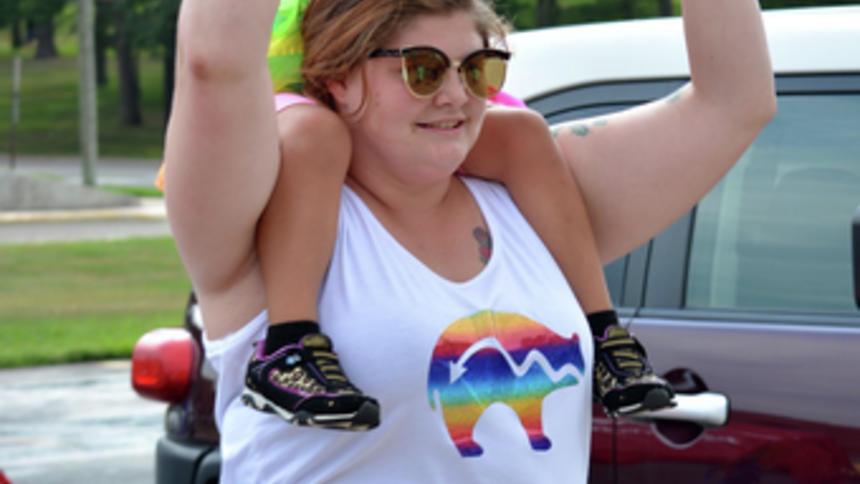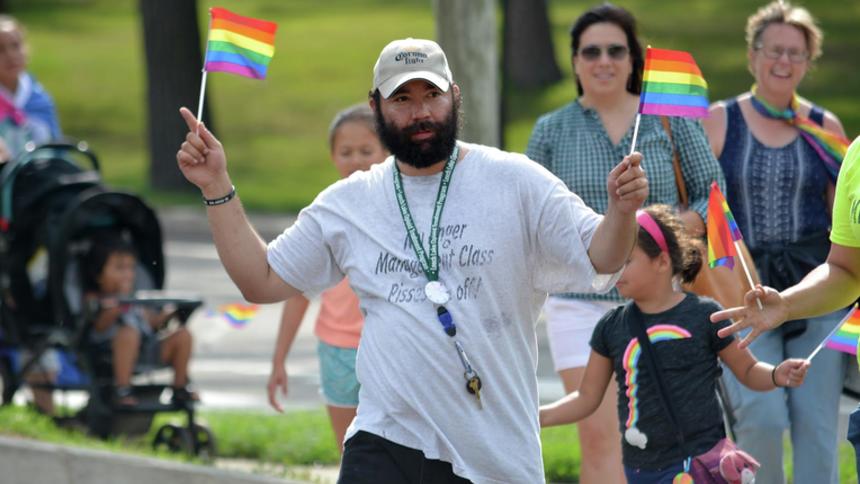


BEMIDJI—About 50 people showed up to Bemidji State University’s American Indian Resource Center on Wednesday at the fifth-annual Two Spirit Awareness Day, and the resource center’s second.
Before that, about a dozen people waving rainbow flags marched from the Chief Shaynowishkung statue to the resource center. They were lead by Arnold Dahl-Wooley, a Two Spirit man and Leech Lake Band of Ojibwe member. He marched in traditional American Indian regalia and carried a large rainbow flag as the occasional passing motorist honked or cheered in support.
The term “Two Spirit” generally encompasses LGBTQ American Indians, but, traditionally, it has a broader cultural and spiritual connotation that faded and turned negative as North America was colonized, Dahl-Wooley said. The march, then, was something of a reclamation.
“We’re trying to come full circle on a lot of things, and this is one big part of it,” he said as he marched along Lake Boulevard, bells jingling with each step. As the marchers approached campus, Dahl-Wooley gave the flag to a small girl to carry for the remainder. “We’re kind of returning back to our roots, culturally, to show that this is something that’s very special, something that’s very honorable.”
At the resource center, organizations such as the Rural AIDS Action Network had set up booths advertising their services. “RAAN” helps its clients navigate their medical care and benefits, offers early intervention services, and conducts syringe exchanges, among other services. Staff there recently added Narcan training and offer Narcan kits as they expanded their scope to include the opioid crisis, explained Executive Director Mary McCarthy.
Opioid use and HIV are found across the board, she said, but are often more prevalent among LGBTQ people or American Indians. The network doesn’t specifically tailor its services to those communities, McCarthy said, but many staffers there are LGBTQ or American Indian.
Staff at Northwoods Caregivers try to help people who take care of LGBT elders understand the trauma that many presumably have endured, said rainbow lei-clad Glenda Duhamel, who ran a booth for the organization at the awareness day. That means working particularly hard to build trust—82 percent of LGBT seniors believe they’ll be abused by their caregivers because they were bullied when they were younger, Duhamel said, and the possibility might not even occur to straight patients. It also means asking about a client’s spirituality or how they find balance, she explained.
“Events like this in the community strengthen our students here on campus,” said Bill Blackwell, Jr., the resource center’s executive director, of the awareness day.
